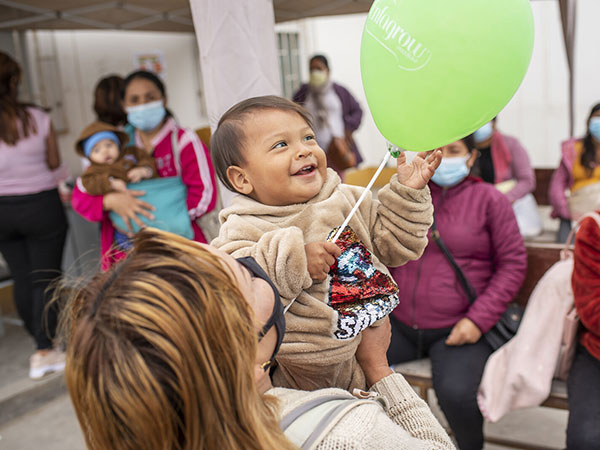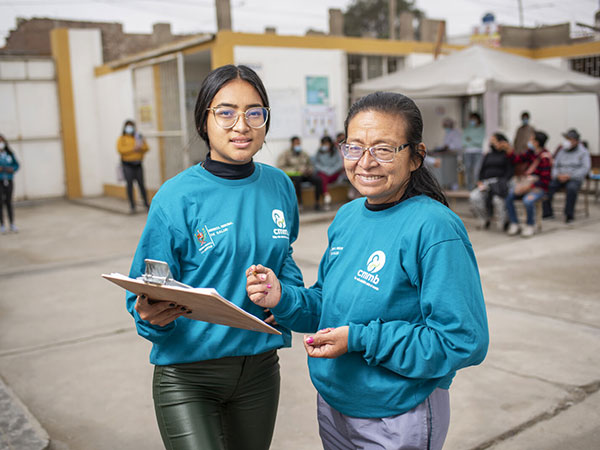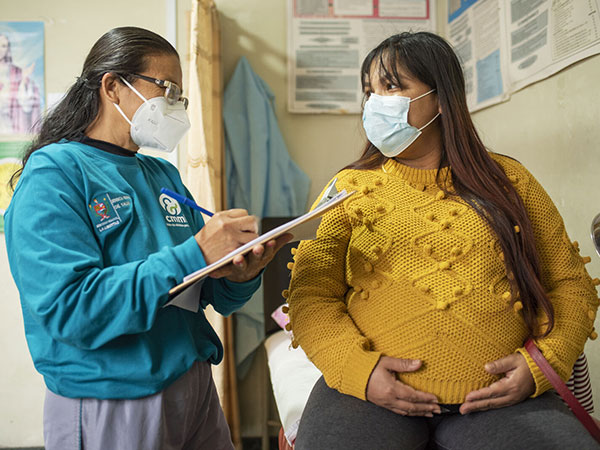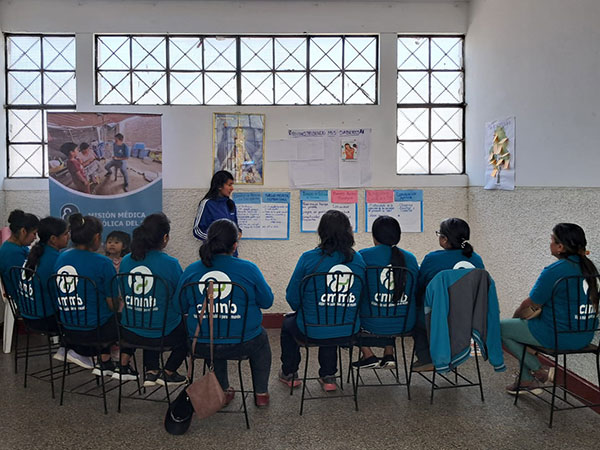Prioritizing Mental Health in Peru

Mental wellness is a crucial part of a person’s overall health. Yet, it’s often overlooked, especially in two critical populations—the health workforce and pregnant and postpartum women. For CMMB, addressing the mental health needs of our health workers and the people they serve is a priority. In Huancayo and Trujillo, Peru, we are making mental health programming a key component of our health solutions to support the whole person—not just in physical health, but emotional, too.
Mental Health Support for Those Who Care for Others
In remote parts of Peru, community health workers are often a family’s only connection to health services. CMMB-supported community health workers are trained and equipped to provide basic medical care, screen children and pregnant women for health issues like anemia, and make referrals to health professionals when needed.
The role of a community health worker is essential but challenging. So many people depend on them. During the pandemic, especially, healthcare professionals and community health workers carried out their work under immense pressure and stress.
In response, CMMB now provides mental health support. We connect our health workforce with strategies and tools that help them cope better with stress and prioritize their mental health. CMMB creates training sessions that offer guidance on how to manage difficult situations, grow self-esteem, and develop empathy.
By caring for themselves, CMMB’s health workforce in Peru can provide better care for their patients, too. The impact is palpable—our patients report higher levels of satisfaction with the care they receive.
Helping Pregnant Women in Peru Prioritize Mental Health
Pregnancy can be an overwhelming transition in a woman’s life. From the health risks associated with pregnancy to the responsibility that comes with raising a child, there is no shortage of changes. Pregnancy’s physical and emotional impact only add to the stress, anxiety, and depression that can be common among mothers-to-be.
Globally, about 10% of women experience depression during pregnancy, with 13% reporting depression symptoms after giving birth. In low- and middle-income countries, depression is even more common, affecting about one in four women.
What’s worse, the high prevalence of anemia in Peru’s rural communities can exacerbate mental health issues. After delivery, mothers who suffer from depression may find it difficult to bond with their newborn.
Prenatal depression does not just impact the mother, it can also contribute to low birth weight and developmental disorders, causing years of challenges for a young child and their family.
With support from our team of community health workers and trained mental health professionals, CMMB is working to reduce symptoms of depression in pregnant women. In addition to encouraging antenatal care and in-facility births, our comprehensive pregnancy support includes mental health care and education. Our team talks to expectant mothers about their fears and emotions, identifies signs of postpartum depression, and provides guidance on forming an emotional and secure attachment with their newborns.
We also train midwives on providing comprehensive mental health support and advise family members on how to spot depression symptoms. This strengthens the support systems that are so critical in early motherhood.
Yuvissa’s Story
As we prioritize the mental health of pregnant women and health workers in Peru, we rely on skilled professionals like Yuvissa.
Yuvissa is a social worker at the La Esperanza Community Mental Health Center in Trujillo. She provides professional mental health counseling that promotes healing and well-being.
“Through socio-emotional support, I can help people facing life crises restore their balance and provide hope,” she told us.
We are grateful for healthcare workers like Yuvissa. Thanks to her, more vulnerable people in Peru have the support they need to improve their mental health. We invite you to watch the video below to learn more about Yuvissa’s work.


